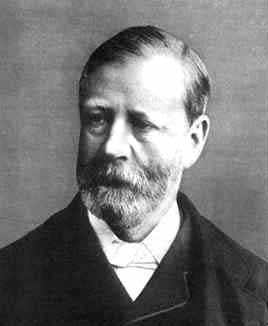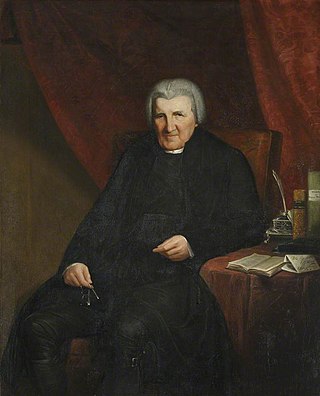Related Research Articles

William Hopkins FRS was an English mathematician and geologist. He is famous as a private tutor of aspiring undergraduate Cambridge mathematicians, earning him the sobriquet the "senior-wrangler maker."

Rev. Henry William Watson FRS was a mathematician and author of a number of mathematics books. He was an ordained priest and Cambridge Apostle.

At the University of Cambridge in England, a "Wrangler" is a student who gains first-class honours in the Mathematical Tripos competition. The highest-scoring student is the Senior Wrangler, the second highest is the Second Wrangler, and so on. By contrast, the person who achieves the lowest exam marks while still earning a third-class honours degree is known as the wooden spoon.

Ernest William Hobson FRS was an English mathematician, now remembered mostly for his books, some of which broke new ground in their coverage in English of topics from mathematical analysis. He was Sadleirian Professor of Pure Mathematics at the University of Cambridge from 1910 to 1931.

Sir John Wilson was an English mathematician and judge. Wilson's theorem is named after him.

Edward John Routh was an English mathematician, noted as the outstanding coach of students preparing for the Mathematical Tripos examination of the University of Cambridge in its heyday in the middle of the nineteenth century. He also did much to systematise the mathematical theory of mechanics and created several ideas critical to the development of modern control systems theory.

Thomas Musgrave was Archbishop of York from 1847 to 1860.

Sir Raghunath Purushottam Paranjpye also known as Wrangler Paranjpye was an Indian mathematician and diplomat who served as the 1st High Commissioner of India to Australia from 1945 to 1947. He became the first Indian to achieve the coveted title of Senior Wrangler at the University of Cambridge. Later in life he also served as the Vice Chancellor of many Indian universities.
Samuel Earnshaw was an English clergyman and mathematician and physicist, noted for his contributions to theoretical physics, especially "Earnshaw's theorem".
Richard Pendlebury was a British mathematician, musician, bibliophile and mountaineer.

The Senior Wrangler is the top mathematics undergraduate at the University of Cambridge in England, a position which has been described as "the greatest intellectual achievement attainable in Britain".

Henry Philpott was an Anglican bishop and academic.

Sir James Stirling, FRS was a British barrister, judge, and amateur scientist. In his youth he demonstrated exceptional ability in mathematics, becoming Senior Wrangler at Cambridge in 1860, regarded at the time as "the highest intellectual achievement attainable in Britain". He was a High Court judge in the Chancery Division from 1886 to 1900, and a Lord Justice of Appeal from 1900, when he was made a Privy Counsellor, until his retirement in 1906. He continued to pursue his scientific and mathematical interests during his legal career, and after retiring from the bench became vice-president of the Royal Society in 1909–1910.
Robert Thorp was a British clergyman.

Joseph Turner was a British academic and clergyman.
Thomas Parkinson was an English clergyman.
Sir Joseph Littledale was an English judge.
Francis Bashforth was an English Anglican priest and mathematician, who is known for his use of applied mathematics on ballistics.

James Porter was a British academic in the second half of the 19th century.

Robert Phelps served as Master of Sidney Sussex College, Cambridge from 1843 until his death.
References
- ↑ "Classical Victorians: Scholars, Scoundrels and Generals in Pursuit of Antiquity" Richardson, E p196: Cambridge, CUP, 2013 ISBN 978-1-107-02677-3